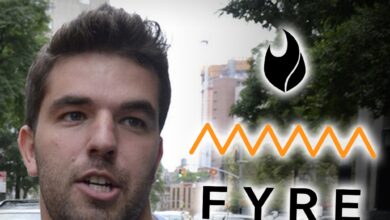Tyler Perry Highlights Job Loss Concerns Amid AI Software Advancements

Tyler Perry, the acclaimed filmmaker and entertainment mogul, has voiced significant concerns regarding the impact of artificial intelligence (AI) on employment. Perry’s insights come at a time when AI technology is making substantial strides, raising questions about its implications for the workforce across various sectors.
In a recent statement, Perry underscored the potential for AI to streamline operations and increase efficiency in many industries, from entertainment to manufacturing. However, he also pointed out the darker side of this technological revolution: the displacement of jobs. With AI’s ability to automate tasks previously carried out by humans, Perry warns of a future where job losses could become widespread, affecting livelihoods and economic stability for many.
Perry’s concerns resonate with ongoing debates among economists, tech experts, and policymakers about the balance between embracing technological innovation and safeguarding employment opportunities. The entertainment industry, where Perry has made his mark, is particularly susceptible to these changes. Advances in AI could transform content creation, distribution, and consumption, potentially reducing the need for human involvement in these processes.
Moreover, Perry’s commentary sheds light on the broader societal implications of unchecked AI development. He calls for a thoughtful approach to integrating AI technologies, emphasizing the need for strategies that mitigate adverse effects on employment. This includes investing in workforce retraining programs and exploring new job creation avenues that can accompany the AI revolution.
As an influential figure, Perry’s warning about AI-induced job losses adds weight to the call for a balanced, ethical approach to technological advancement. It prompts a vital conversation about ensuring that the benefits of AI are not overshadowed by the human costs, particularly in terms of employment.
The discussion initiated by Perry highlights the urgency of addressing the challenges posed by AI to the job market. It serves as a reminder that as society stands on the brink of a technological leap forward, it must also commit to protecting and fostering the human element that underpins the economy and culture.





